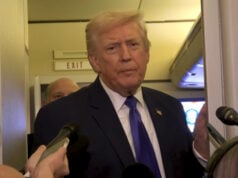
As the cryptocurrency landscape keeps expanding, a combination of financial tools and playful, community-fueled projects like the dog-themed meme coin Maxi Doge, which is currently in its presale phase, is offering staking rewards and contests to engage investors. Leading financial institutions are pushing for revisions to existing regulations that may prevent banks from participating in the cryptocurrency market. These rules, created some time ago following major scandals in the crypto space and are now considered too strict for the current, more stable and integrated market.
It started with a letter to the Basel Committee on Banking Supervision, the group that sets the rules for banks everywhere. Some big trade groups teamed up to say the crypto rules from 2022 need a rethink before they go live in January 2026. Back then, everyone was dealing with messes like FTX, so regulators made banks hold a ton of extra cash for certain digital assets—like 1250% risk weighting for assets on permissionless blockchains. That pretty much stopped them from getting into tokenization, stablecoins, and other new blockchain stuff.
The letter was signed by groups like the Institute of International Finance (IIF) and the Global Financial Markets Association (GFMA). They’ve done this before—they sent a similar letter three months ago. Now, they’re pushing harder with new info on how distributed ledger technology (DLT) is catching on in capital markets. They’ve even updated a report showing real adoption, from tokenized funds to faster settlements.
Their main point is that the rules make too big a gap between permissioned and permissionless blockchains. The letter says this binary distinction in capital charges isn’t risk-sensitive nor economically rational, and doesn’t match the actual risks. They’re focusing on stablecoins—digital dollars—this time, asking for two changes to make them easier for banks to use. They want regulators to hold off on the 2026 deadline, get more current info on DLT uses, and change the rules so banks can get involved without unnecessary problems.
The mood in the crypto market is currently more optimistic, especially in the U.S., with President Donald Trump’s crypto-friendly stance. Banks are looking at something like custody services for digital assets or even starting their own stablecoins, just like those U.S. lenders discussing a joint project. Plus, Circle’s IPO is performing well. The GENIUS Act, which aims to create stablecoin regulations, is on its way to becoming law. Bitcoin is reaching all-time highs, and the SEC and White House appear more receptive to crypto. It seems that progress is occurring. The White House even hinted that the U.S. might not stick to the Basel rules exactly, giving banks more reason to push for changes.
The groups warn that if things stay as they are, banks could miss out while less-regulated companies take over, which could cause problems. Tokenization is turning assets like bonds into digital versions for faster, cheaper trading. Meme coins, which feature daily reward pools and gamified events, are pulling in regular investors with features, too. If banks were more involved, it could mean more oversight and a more stable market.
Some say the 2022 rules were a reaction to a chaotic time, but the industry has cleaned itself up. Scams have been rooted out, and technology like smart contracts is working well for things like staking and automated payments. In Europe, frameworks like MiCA are already trying to encourage new ideas, and Asia is doing the same. The FDIC has put out guidance stressing risk management for crypto activities without shutting anything down.
The letter shows a bigger shift: crypto is now mixing with regular finance. As more people get into different tokens—whether for serious investing or just for fun—regulators are feeling the pressure to adapt. Banks want a piece of the action, and if the Basel Committee listens, it could lead to a more open digital economy. We might hear back from the committee soon, but for now, everyone’s waiting to see if these requests lead to real change.
Disclaimer
The information contained in South Florida Reporter is for general information purposes only.
The South Florida Reporter assumes no responsibility for errors or omissions in the contents of the Service.
In no event shall the South Florida Reporter be liable for any special, direct, indirect, consequential, or incidental damages or any damages whatsoever, whether in an action of contract, negligence or other tort, arising out of or in connection with the use of the Service or the contents of the Service.
The Company reserves the right to make additions, deletions, or modifications to the contents of the Service at any time without prior notice.
The Company does not warrant that the Service is free of viruses or other harmful components












